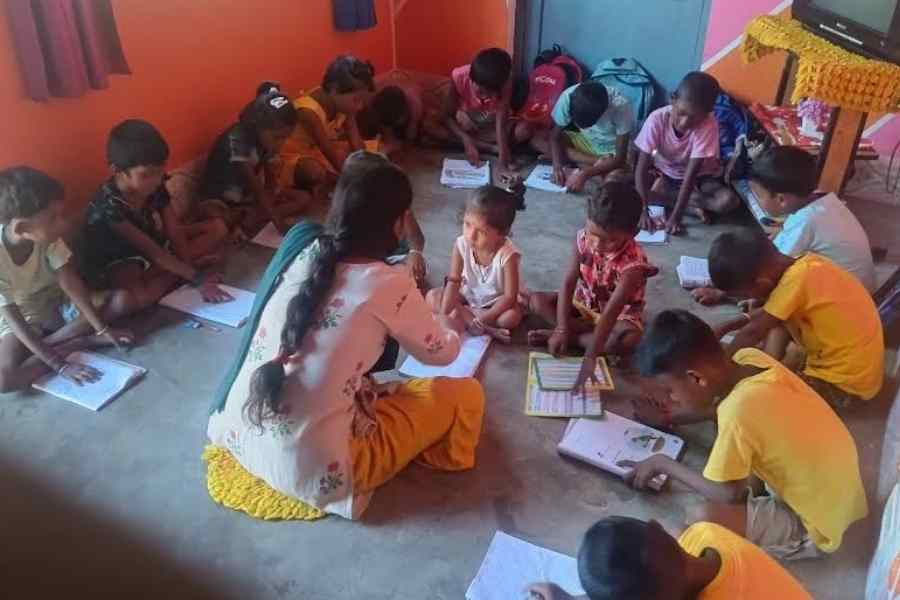The 120-kilometre drive along rainwashed roads from the New Cooch Behar station to the foothills of Bhutan on a mellow autumn afternoon can revive the spirits of even the most despondent Calcuttan. Especially those on a special mission.
Every year, on the eve of Durga Puja, the workers of the tea plantations across Assam and North Bengal turn restive over the payment (or denial) of bonuses. Several gardens in Darjeeling shut down or suspended operations over this. Amguri Tea Estate near the Bhutan border is no exception and tension prevailed as the festive season drew near. The only difference was that this year, two young men from Calcutta, Pranab Paul and Sanjib K. Mitra, accompanied by Debayan Dey from Cooch Behar, reached the plantation to offer solace of a different kind.
Sabit Lohar, 48, a tea garden worker at Amguri, and several other plantation workers, had pleaded for help for the well-being of their young children, mostly aged between two and 10. They are enrolled in a Bengali-medium school but the anxious parents were looking for volunteers to hand-hold the primary school students and engage them in the performing arts and drawing classes as well as help them with math and English lessons.
To launch this October initiative, Sabit offered some space in his home for a ‘classroom’. The three young men spent a few days training the children in these subjects as well as in art, singing and dancing. A first-year college student, Prerana Lohar, mentors the children every day, while the volunteers, who have since returned, monitor the proceedings online.
Dawn is thus an active hour in this Adivasi settlement. Before leaving for school, children like Agni Lohar and Aryan Lohar, both in Class I, sit down to study in Sabit’s yard from 8 am to 10 am. They revise the lessons in Bengali, English and math. The routine is repeated from 5.30 pm till 7 pm, once they are back from school. The evening class mainly focuses on completing their homework.
On the weekends, the children learn art and dance. Sabit’s eight-year-old daughter, Dipali, a student of Class III, is an eager participant. The tiniest tot in this group of 15 children, two-year-old Tulsi Thakur, comes dressed in a daffodil-yellow frock to try a few tentative steps with her seniors.
Not surprisingly, it is the women tea garden workers, like Gita Lohar, who are out in large numbers to cheer the children. During the monsoon months, when plucking of tea leaves is in abeyance, Gita and her companions are at home and can devote time to the youngsters in this back-of-beyond hamlet.
Tea gardens in the Northeast and North Bengal often fall in elephant corridors and pachyderm attacks are always a concern. The forest areas are also inhabited by wildlife, making walking or cycling along deserted tracks through miles of tea gardens hazardous. That is why tea garden workers consistently harp on better infrastructure, security and wages.
Amid the conflicts, positive narratives often go unreported. In Assam, for instance, there are tea gardens where Durga Puja brings all faiths together. In Tripura, too, Hindus and Muslims celebrated unitedly this month at community Pujas like Jubak Sangha next to the Akhaura Integrated Check Post in Agartala, on the Bangladesh border.
With the Union ministry of commerce and industry approving Rs 664.09 crore for the development of the tea industry, one hopes the funds will be infused into plantations like Amguri, whose workers are striving to reclaim a modicum of self-worth by equipping their progeny with skills for a brighter future. Where children like Yug and Pratik Lohar can look forward to a life without fetters, their eyes sparkling with the light of knowledge and freshly-honed skills.











